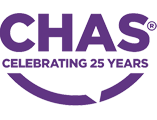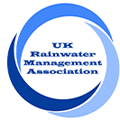Wake up to water scarcity. It is time to become water-efficient! World Water Day
22/03/2023
Can you imagine waking up to rationed water supplies? Although it is hard to imagine here in the UK, that is the reality facing four billion people across the globe. Even in the UK, many regions are classed as ‘seriously water stressed’ by water regulators. The problem of water scarcity is a global one, and a problem we should all tackle together. Whether it be simply reducing water usage in your home, or your business saving water on an industrial scale, these are steps we must act on now. This World Water Day we are wanting everyone to ‘wake up to water’ and pledge to become more water-efficient over the coming months.

Water is a fundamental part of human life but the way we use it, control it, and distribute has changed dramatically over time. The first ever major UK water supply system was developed in the 1700s. Yet, this only served the wealthy elite, rather than the whole population.
At this point, water was either collected from a public fountain or very wealthy households paid a private subscription fee to receive water straight to their homes. Only those with large incomes could afford to pay a ‘cob’ which was a professional water carrier.
By the late 1800s water supplies were becoming widespread throughout London, with toilets becoming the latest mod-con in households. It was only in the 1900s when access to water was considered a fundamental right in the UK.
Today, our potable water supplies are fed from vast infrastructure systems which are supplied from streams, lakes, and reservoirs. Yet in developing countries, communities still must travel many miles to collect a safe supply.
If you want to learn more about water conservation, rainwater harvesting or greywater recycling then we are here to help! Let’s all become water saving champions this World Water Day and beyond.

My role as a Water Reuse Specialist means I get to keep up to date with all things water conservation. My favourite water saving tip is to turn taps off when brushing your teeth! I think rainwater harvesting and the water reuse industry is exciting, and I love sharing updates with our customers. View Matt’s Stormsaver profile here.
Terms & Privacy Policy Cookie Policy Site Map
Copyright © 2024 Stormsaver Ltd. All Rights Reserved.





